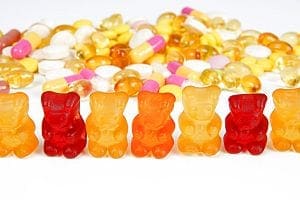statFor some women, it's about making an elegantement at special events or being a couple…

Best Nutritional Supplements for Children
 If children eat a healthy, balanced diet, they should not generally require nutritional supplements. However, very few children actually eat a wide enough variety of foods to get the all the nutrients their growing bodies need. To help you choose the best nutritional supplements for your children, we discuss the most important ones below.
If children eat a healthy, balanced diet, they should not generally require nutritional supplements. However, very few children actually eat a wide enough variety of foods to get the all the nutrients their growing bodies need. To help you choose the best nutritional supplements for your children, we discuss the most important ones below.
Multivitamins – The top Nutritional Supplement to give your child is a quality multivitamin. Multivitamins for kids are specially formulated to contain just the vitamins and minerals your child needs, and in the right amounts. A good multivitamin should contain at minimum the following:
- Calcium – A low intake of calcium early in life can lead to osteoporosis when your child gets older. Calcium is crucial for a child’s proper bone development.
- Vitamin D – Many children (and adults) are deficient in vitamin D. The fact that we spend a lot more time indoors than we used to and that we use sunscreens more frequently when we do go outside means that we don’t get enough exposure to sunlight for our bodies to create vitamin D naturally. In some parts of the world far from the equator, this is actually a seasonal problem—no matter how much time people spend outdoors, there simply aren’t enough hours of sunlight during short winter days for anyone to produce enough vitamin D on their own. Vitamin D is important not only for strong teeth and bones (it aids in the absorption of calcium), but it’s crucial to the health of the immune system as well.
- Iron – In order to help children develop healthy red blood cells and prevent anemia, healthcare professionals often suggest that they take an iron supplement. Iron is also important for muscle building and is particularly necessary during stages of rapid growth.
- Vitamin C – This vitamin supports a healthy immune system, strengthens muscles and connective tissue and speeds the healing of wounds. It also aids iron absorption.
- B-vitamins – Necessary for the development of healthy blood cells, B-vitamins are also important to maintaining a healthy metabolism.
Omega-3 fish oil – Studies have shown that children who take fish oil supplements are calmer, concentrate better, and are more productive in school. Omega-3 fatty acids support and protect the brain and nervous system and help keep emotions stable.
Probiotics – Studies are increasingly showing the importance of healthy gut flora to overall health and emotional wellbeing. The common use of antibiotics has reduced the population of healthy microbes, which leads to digestive problems and reduced immunity to disease.
Always consult with your child’s physician before giving your child any type of supplements. While they are generally safe, some vitamins and minerals can be toxic when taken in large amounts (particularly the fat-soluble vitamins A, D, E and K). When it comes to safety, it’s best to think about supplements in the same way that you think about medicines:
- Make sure you buy them from a knowledgeable, reputable source.
- Know exactly what’s in them.
- Keep them out of the reach of children.
You might also want to consider buying chewable tablets, since some children have difficulty swallowing pills.
As a responsible parent or guardian, one of your first priorities should be to make sure your child has a well-rounded, nutritious diet that provides as many of the building blocks as possible for healthy development. But by using supplements in a thoughtful way to ensure adequate amounts of vitamins and minerals and to fill in particular nutritional gaps, you can work with your physician to start your child on a path to lifelong health.




